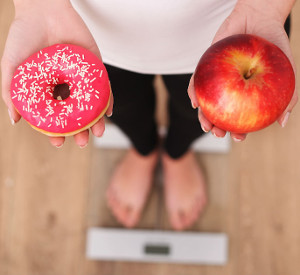
When it comes to losing weight, there are lots of methods out there. And unfortunately, a lot of information from sources we thought were okay to trust are not providing valid information. Today we’re breaking it all down by looking at science and considering more angles than just one. If you’re looking for a way to get fit, get stronger, or just love your body take a look at what we’re talking about below.
This resource really does consider it all – from the Keto diet to weight loss tea, we are clarifying which trends work and which trends are a full-on sham. Let’s get busy, starting with what NOT to do if you’re aiming to get healthy and fit.
Weight Loss Teas
Weight-loss teas don’t work. If drinking a tea really did the trick, we’d all be at our “ideal weight” by now. When your intuition tells you something is too good to be true, believe it!
The Theory: The idea behind weight loss tea is three-fold: suppress appetite, boost metabolism, and increase fat burning. Theoretically, the tea’s blend of specific herbs and tea leaves are the key to weight loss. Some are labeled as detox teas, claiming to rid your body of all the bad stuff.
The Reality: The most common reaction you’ll find from a tea is a slight boost in energy from the caffeine content or more frequent bowel movements due to the natural laxatives in many herbal drinks and teas. There are some health benefits to drinking certain teas, however, losing weight can only be achieved when it’s complemented with a healthy diet and regular exercise.
Body Wraps
Body wraps don’t work. We wish they did! We really do. But anytime you see a dieting tool that looks too good to be true, it is.
The Theory: Body wraps are marketed to do a few different things. Supposedly, they will redefine the appearance of your body’s contours (change your shape) by tightening, toning, and firming the skin. They can improve your skin’s texture by getting rid of toxins and excess fluids.
The benefits of body wraps may include detoxification, boosting of the lymphatic system and metabolism, body contouring, temporary inch-loss, skin tightening, and skin softening.
The Reality: None of the theories about body wraps translate to weight loss. At best, a body wrap can temporarily remove an inch or two from your waistline. But this slight alteration to your body fades quickly and your body will eventually go back to its natural state.
Extreme Calorie Deficits
This includes the HCG diet, starvation, and the eating disorder Anorexia.
The Theory: By restricting your calorie intake, you force your body to pull from fat stores for energy, therefore, you’ll experience faster weight loss.
The Reality: Extreme calorie deficits are dangerous and can lead to a number of proven health risks:
- Decreased metabolism
- Lower bone density
- Dizziness and instability
- Fatigue
- Decreased muscle mass
- Hair loss
- Fertility issues
- Nutrient Deficiencies
- Compromised immune system
- May reduce estrogen levels in women
Besides all of the negative side effects, you can experience by severely limiting your calorie intake, a major adverse effect when you resume a normal calorie intake – you actually gain weight.
Intermittent Fasting
This is a newly popular element to dieting that doesn’t necessarily focus on WHAT you’re eating and it’s also not considered an extreme calorie deficit. You’re still consuming a healthy amount of calories each day, but your focus is on WHEN you’re eating. You can discover intermittent fasting more in detail in our blog post, An Introductory Guide To Intermittent Fasting.
Low-Carb Diets
There are many variations of low-carb diets. A non-specific diet that focuses on low-to-no carb intake looks like this:
- Limiting yourself to 100–150 grams of carbohydrates in a day. In theory, you can expect to maintain weight in this range, depending on the amount of physical activity you’re taking part in each day. However, this is highly affected by a number of other factors. Genetics, average daily calorie expenditure, and daily calorie consumption.
- Limiting yourself to 50–100 grams of carbohydrates in a day. In theory, you can expect a slow drop in body weight in this range. But your results will also depend heavily on other factors like average daily calorie expenditure and intake. In the 50-100 grams of carbohydrates range, you can eat lots of fruits and vegetables.
- Limiting yourself to under 50 grams of carbohydrates in a day. Consuming under 50 grams of carbohydrates in a day is no easy task. This method of low-carb dieting is intended for fast weight loss and borders on extreme calorie restriction (see below). Vegetables are your main source of nutrition at this carb range.
Popular diets that fit into this niche include:
Each of these diets limit carbohydrate intake dramatically, with a focus on either high fat or high protein.
The Theory: The idea behind the low-carb diet is that decreasing carbs lowers insulin levels, which causes the body to burn stored fat for energy and ultimately leads to weight loss.
The Reality: While none of these diets are notably harmful, these dietary changes are difficult to sustain over a lifetime and many who lose weight with these methods see the weight return if they go back to their old eating habits. Just because it’s difficult doesn’t mean it’s not possible. Before starting a low-carb diet, speak with your family physician.
High-Protein Diets
Popular diets that fit into this niche include the Atkins Diet, the Paleo Diet, and the Dukan Diet. These types of diets limit your carb intake with a major focus on protein consumption.
The Theory: Eating more protein is believed to help you feel full. This can lead to less grazing and snacking, overall consuming fewer calories. Protein is also believed to be crucial in keeping muscle mass, which then leads to a higher calorie burn because muscle tissue burns more calories.
The Reality: Long-term studies have yet to determine the health benefits or risks of a high-protein diet. While plenty is known concerning high-protein consumption over short time periods for weight loss, we don’t know if there are risks over the long term. Some studies show concern that it could lead to higher amounts of acid in the kidneys and other health conditions normally associated with diets that consist of a lot of animal fat.
Adverse effects of high protein intake include intestinal discomfort, hyperaminoacidemia, hyperammonemia, hyperinsulinemia, dehydration, irritation, nausea, diarrhea, liver and kidney injuries, fatigue, headache, seizures, and high risk of cardiovascular disease.
The side effects above are more extreme cases and not everyone is at risk of adverse reactions to a high-protein diet. But like low-carb diets, this form of dieting is harder to maintain for longer periods. And it’s likely that when you’ve gone back to your regular eating habits, you will gain back the weight you had lost. However, unlike low-carb dieting, high-protein dieting is an easier lifestyle change to make and maintain for a longer time.
High-Fat Diets
Popular diets that fit into this niche include the Keto diet and the Atkins diet. These types of diets limit your carb intake with a major focus on healthy fat consumption. Most calories come from healthy fats such as meat, fish, nuts and seeds, and various oils.
The Theory: By limiting your carbohydrate intake and increasing your healthy fat intake, your body turns away from carbohydrates/glucose as a fuel source and uses dietary fats or body fat as its fuel source instead.
The Reality: You can encourage your body to pull from your fat stores as an energy source, so the theory behind this form of dieting isn’t off base. But like most diets, longevity is what’s in question. If you can maintain a lifetime of restricting your carbohydrate consumption then you’ll lose weight and keep the weight off with a high-fat diet. But if you stop focusing on this diet and start incorporating your old eating habits more regularly, the weight you’ve lost will likely return.
Maintaining this dietary change is necessary for long term weight loss. But there are risks associated with a high-fat diet. Accelerated aging and increased intestinal inflammation have been associated with high-fat diets if not executed properly. If you’re considering a high-fat diet, talk with your physician first to see if this diet is right for you.
Weight Loss Supplements
Some of the most popular weight loss supplements include:
- Garcinia Cambogia (hydroxycitric acid (HCA))
- Hydroxycut
- Caffeine
- Orlistat
- Raspberry Ketones
- Green Coffee Bean Extract
- Glucomannan
- Meratrim
- Green Tea Extract
- Conjugated Linoleic Acid (CLA)
- Forskolin
- Bitter Orange/Synephrine
- Rx: Contrave, Belviq, Qsymia
The Theory: Supplements are quite literally “supplementary” aids to combine with regular exercise and a healthy diet. Each of these supplements embodies a few key ideas: Suppress appetite (make you feel full longer), reduce absorption (more diarrhea), and increase metabolism/fat-burning (caffeine).
The Reality: Weight loss supplements may increase your weight loss, but only just a little — and only when paired with a healthy diet and regular exercise. One study showed that between two test groups (one group taking Garcinia Cambogia and another group taking a placebo), there was absolutely no difference in body weight or fat mass change. Some supplements can be useful but their effects are typically minimal.
The benefits of many supplements may not outweigh the risks associated with them. Always pay attention to the ingredients in a supplement, and consult your physician before adding them to your regular diet.
Elimination Diets
Depending on your genetic makeup, you could actually benefit from eliminating certain things from your diet. However, elimination diets are not used for weight loss. This form of dieting is a procedure used to figure out which foods are irritating to an individual.
The Theory: Removing certain foods from your diet may result in you feeling better. You can eliminate bloating, bowel irritability, skin issues, or other health concerns by eliminating the right food irritants. Elimination diets help to identify food allergies and foods that cause unwanted pharmacological reactions and may actually help you to reduce inflammation and improve your gut health which, in turn, can help you to manage your weight loss better.
The Reality: Elimination diets used as a tool to identify food allergies and sensitivities can be very helpful. If you were able to identify a food source that caused excessive bloating or intestinal issues, then removing that food item from your diet could help you manage your weight. But again, elimination diets are not typically used to achieve weight loss.
Weight Loss Medical Procedures
Roux-En-Y Gastric Bypass is the most commonly used bariatric procedure for weight loss. The stomach is divided to create a small stomach pouch that restricts your food intake. Then the small intestine is divided so the new portion of the stomach can be connected to the small intestine.
The Laparoscopic Adjustable Gastric Banding contains an inflatable balloon that is placed in the upper portion of the stomach, which creates a very narrow opening to the rest of the stomach. The band can be deflated or inflated by injecting fluid through the port. This restricts the amount of food that your stomach can hold.
Sleeve Gastrectomy removes a part of the stomach completely, creating a smaller stomach into a tubelike structure. This procedure produces less appetite-regulating hormone ghrelin, which decreases the desire to eat and does not affect the absorption of calories and nutrients in the intestines.
Biliopancreatic Diversion With Duodenal Switch (BPD/DS) Gastric Bypass is performed by first creating a smaller stomach by removing a large section of the stomach pouch, then bypassing a large portion of the small intestine, and closes off the middle section of the intestine and attaches the last part directly to the duodenum. With the smaller stomach and reduced small intestine, fewer calories and nutrients are absorbed prior to excretion. With the smaller stomach pouch, food intake is also reduced. But over time, the stomach can manage “normal” amounts of food again.
The Theory: A smaller stomach restricts food consumption. Additionally, gut health is thought to be improved due to changes in the metabolism of hormones.
The Reality: These forms of weight loss are only used for obese patients. They do produce significant long-term weight loss results. But surgery is risky and complex, requiring a hospital stay and recovery, strict dietary restrictions, and life-long vitamin supplementation due to the possibility of long-term nutritional issues.
Regular Daily Exercise
Exercise is a safe way to lose weight. While exercise alone will not ensure weight loss, it has a number of proven benefits that will increase your likelihood of burning calories, including:
- Improved mental agility
- Improved memory
- Increased muscle mass
- Increased metabolism
- Increased calorie expenditure
- Improved heart health
- Improved immune system
- Increased energy
The Theory: Regular exercise results in increased calorie expenditure and a decrease in body fat.
The Reality: Regular exercise is only an effective weight loss tool when you’re appropriately using more calories than you’re consuming. Sweat and heavy breathing might not accurately represent an effective workout. Tracking your heart rate can be incredibly helpful to make sure you’re putting in the effort necessary to reap the benefits of exercise.
Heart rate monitors used for exercise such as the wireless heart rate monitoring chest strap are not medical devices, and their accuracy may be affected by a number of factors. They are also not intended to diagnose, treat, cure, or prevent any disease.
Calorie-Counting
Calorie-counting involves weighing out your food, reading nutrition labels, and accurately tracking the calories you consume. Additionally, those who practice calorie-counting will accurately track their daily calorie expenditure. The goal is to make sure you’re not eating more calories than what you are burning.
In Theory: Using more calories than you consume will result in the body pulling from stored energy, depleting your reserves.
In Reality: Counting your calorie intake and expenditure is a safe way to facilitate weight loss. Creating a calorie deficit (consuming fewer calories than you burn in a day) is the basis for most, if not ALL diets out there. Diet variations play with the types of foods you get your calories from and that’s where the lines start to blur between fact and fiction.
Tracking Your Macronutrients
Tracking your macronutrients takes calorie-counting a step further. Within your budgeted allowance for daily calories, you’ll set specific calories aside for consuming carbs, fats, and proteins. These numbers are determined based on your age, gender, and total body weight (or lean body mass). Generally speaking, macronutrient ratios for generating weight loss look like this:
- 45-65% of your daily calories come from carbs
- 20-35% of your daily calories come from fats
- 10-35% of your daily calories come from protein
Macros can be calculated more specifically based on a particular diet you’re following, based on lean body mass, or based on body type (ectomorph, mesomorph, or endomorph). By tracking your calories more precisely and measuring your macronutrients, you can theoretically avoid weight gain.
BOTTOM LINE
Losing weight can be done quickly if you’re consistent and dedicated to a plan. But maintaining that lost weight becomes nearly impossible if your weight loss plans are unsustainable over your lifetime. In fact, this study claims that extreme dieting like low-carb/high-fat, low-fat/high-carb, and extreme calorie reduction diets don’t work for long term results because of sheer boredom.
Fueling your body with the right foods and regular exercise is key! With so much information out there, make sure to do your research and follow reliable sources for advice on health and fitness. And always consult your physician before trying a new diet or making any significant changes to your lifestyle.
DISCLAIMER: This post is not intended to replace the advice of a medical professional. The above information should not be used to diagnose, treat, or prevent any disease or medical condition. Please consult your doctor before making any changes to your diet, sleep methods, daily activity, or fitness routine. NordicTrack assumes no responsibility for any personal injury or damage sustained by any recommendations, opinions, or advice given in this article.
Sources:
https://www.nordictrack.com/learn/beginners-guide-ketogenic-diet/
https://www.webmd.com/diet/tea-and-weight-loss#1
https://www.webmd.com/beauty/features/body-wraps-what-to-expect#1
https://www.webmd.com/beauty/features/body-wraps-what-to-expect#2
https://www.healthline.com/nutrition/calorie-restriction-risks
https://www.ncbi.nlm.nih.gov/pubmed/18486582
https://www.ncbi.nlm.nih.gov/pmc/articles/PMC5639963/
https://www.healthline.com/nutrition/what-is-intermittent-fasting
https://www.nordictrack.com/learn/guide-to-intermittent-fasting/
https://www.mayoclinic.org/healthy-lifestyle/weight-loss/in-depth/low-carb-diet/art-20045831
https://www.healthline.com/nutrition/how-many-carbs-per-day-to-lose-weight#section3
https://www.mayoclinic.org/healthy-lifestyle/weight-loss/in-depth/atkins-diet/art-20048485
https://www.healthline.com/nutrition/10-signs-and-symptoms-of-ketosis
https://www.webmd.com/diet/zone-what-it-is#1
https://www.webmd.com/diet/a-z/dukan-diet
https://www.medicalnewstoday.com/articles/324915.php
https://www.webmd.com/diet/news/20050829/protein-exercise-may-promote-weight-loss#2
https://www.webmd.com/diet/obesity/features/8-ways-to-burn-calories-and-fight-fat#1
https://www.ncbi.nlm.nih.gov/pmc/articles/PMC4258944/
https://pubs.rsc.org/en/content/articlehtml/2016/fo/c5fo01530h#cit100
https://www.healthline.com/nutrition/ketogenic-diet-101
https://www.mayoclinic.org/healthy-lifestyle/weight-loss/in-depth/atkins-diet/art-20048485
https://www.ncbi.nlm.nih.gov/pubmed/22033707
https://www.ncbi.nlm.nih.gov/pmc/articles/PMC4924095/
https://www.healthline.com/nutrition/12-weight-loss-pills-reviewed
https://www.nordictrack.com/learn/benefits-of-exercise-that-get-overlooked/
https://jamanetwork.com/journals/jama/fullarticle/188147
https://www.healthline.com/nutrition/elimination-diet
https://www.healthline.com/nutrition/gut-bacteria-and-weight
https://www.mayoclinic.org/tests-procedures/gastric-bypass-surgery/multimedia/lap-band/vid-20084653
https://www.ncbi.nlm.nih.gov/pmc/articles/PMC6343052/
https://www.ncbi.nlm.nih.gov/pmc/articles/PMC5700383/
https://www.nordictrack.com/learn/category/workouts/
https://www.ncbi.nlm.nih.gov/pubmed/22889693
https://www.ncbi.nlm.nih.gov/pubmed/21282661/
https://www.ncbi.nlm.nih.gov/pubmed/2222798
https://www.webmd.com/fitness-exercise/guide/how-to-boost-your-metabolism
https://www.unm.edu/~lkravitz/Article%20folder/caloricexp.html
https://www.hopkinsmedicine.org/health/wellness-and-prevention/7-heart-benefits-of-exercise
https://medlineplus.gov/ency/article/007165.htm
https://www.sciencedaily.com/releases/2008/02/080228112008.htm
https://www.ncbi.nlm.nih.gov/pubmed/16526835
https://www.healthline.com/nutrition/counting-calories-101
https://us.humankinetics.com/blogs/excerpt/the-bodys-fuel-sources
https://www.healthline.com/nutrition/how-to-count-macros
https://www.ncbi.nlm.nih.gov/pubmed/28765272
https://www.mindbodygreen.com/articles/why-consistency-is-key-to-weight-loss






